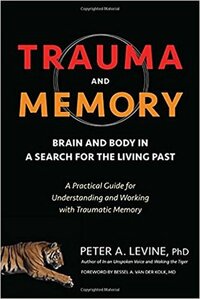Take a photo of a barcode or cover
Textbook heavy / college lecture NOT self-help. This is academic for professionals.
This is a good book for understanding somatic responses to trauma however I would not recommend for non mental health professionals
hopeful
informative
inspiring
reflective
medium-paced
informative
reflective
medium-paced
Clear, but probably far more useful to therapists than to the layperson. I didn't get as much out of this as I got out of Bessel Van der Kolk's The Body Keeps the Score, though admittedly part of that was because the focus was much narrower here.
The strength of this book is Levine’s defining and categorizing types of implicit and explicit memories and his offering various case studies. Still, even as a trauma therapist (EMDR is my primary modality) wanting to learn how to apply some of this knowledge and some SE tools in practice, I struggled with concrete takeaways in terms of practical applications. I got lost as some others have shared in their reviews in some of the details. I’d love more concrete tools for clinicians.
informative
reflective
medium-paced
informative
slow-paced
This book has an interesting premise and practice about how to heal trauma. Some of the research presented here about how trauma manifests itself in the brain and body and can be transmitted across generations is fascinating. But what's most appealing about this book is Levine's method is healing, which is holistic and quite extraordinary.
challenging
informative
reflective
slow-paced
If you're looking to understand memory and how trauma impacts memory this book if fantastic. It explains the concept in fairly easy to understand terms.
If you're looking for techniques to manage traumatic memory its not as helpful, it isn't a self-help book. It emphasises the importance of grounding techniques.
If you're looking for techniques to manage traumatic memory its not as helpful, it isn't a self-help book. It emphasises the importance of grounding techniques.





